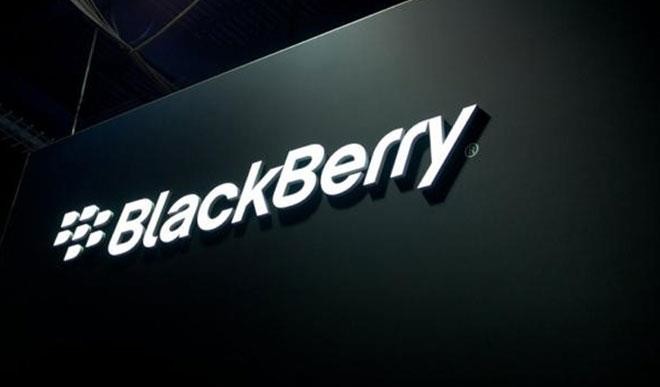Bye-bye BlackBerry phone
BlackBerry finally gave up its efforts to continue developing mobile phones last week Wednesday, humbly bowing down to competitors. That is, the company decided last week to stop manufacturing phones in the face of strong, effective, and destabilizing competition from Apple and Samsung. So, in a sense, BB has finally died, at least as we […]


BlackBerry finally gave up its efforts to continue developing mobile phones last week Wednesday, humbly bowing down to competitors. That is, the company decided last week to stop manufacturing phones in the face of strong, effective, and destabilizing competition from Apple and Samsung. So, in a sense, BB has finally died, at least as we know it – as a phone-manufacturing company. Internet-based technologies can be relatively transient in deed. BlackBerry was so cool those days that even President Obama fought his security officials to let him keep his BlackBerry when he took office in 2008. Too bad, BB phones are now going the way of the dinosaurs.
Starting from February 2017, phones bearing the name BlackBerry will now be owned by the Indonesian company Merah Putih, although now with the new name Blackberry Merah Putih, or BB Merah Putih for short. The company itself is led by PT Tiphone Mobile Indonesia. This is the final resting place for BlackBerry phones, all the way from Canada. According to Blackberry’s Chariman/CEO John S. Chen, PT Tiphone Mobile, which is Indonesia’s largest wireless carrier, will be paying licensing fees and royalties to BlackBerry for using the name to market the phones it will produce.
This column has followed BB’s fall from grace. At a time, 50 percent of all smartphones were BlackBerry, at least up till a year or so after the first iPhone surfaced in 2007. As of the time of the announcement by BB’s Chairman/CEO last week, BlackBerry had less than 1% of the smartphone market.
In the 27 February 2012 article in this column, I hinted of BlackBerry’s declining business, using the phrase “BlackBerry on a Tightrope.” BlackBerry had already started to fight for its life at that time, and its share of the smartphone market had already dropped to 5% at the time, with Android and iOS 40% each. In an attempt to turn things around, the company – then called Research in Motion – came up with a highly-improved version of the PlayBook tablet, rolled out a new and improved BlackBerry® phone, and also launched the much-heralded QNX OS BlackBerry® 10. The operating system would power the tablet and the new phone. A few issues with the rollout were fixed such as the inability to access e-mail on PlayBook without being connected to a BlackBerry® phone. However, most consumers, with iPhone and the Galaxies in hand never budged.
Another attempt to prop things up was the development of BlackBerry Z10, which was BB’s first all-touch-screen device, and the company’s answer to iPhone 5 or Samsung S4. However, this product too failed to revitalize the company. So bad was the outlook for Z10 that U.S. carriers and retailers were discounting the phone by as much as 75%, and Best-Buy and Amazon were offering it for a meager $49, down from the original price-tag of $700! The reality, which for some reasons didn’t seem to sink in with BB’s managers, was that most people who wanted a smartphone had already acquired one by the time Z10 surfaced. Without much differentiation, switching to Z10 was limited mostly to consumers who were upgrading from previous, “non-smart” BB handsets. Q10, a sequel to Z10 also failed.
One crime of the former CEO of BB, Thorsten Heins, appears to be the decision to stake the future of BB on a new line of phones using the new BlackBerry 10 operating system, since these products came too late, and were in the shadows of the iPhones and the Galaxies! Frustrated and despondent, BlackBerry put itself out for sale, but the effort failed in early November 2013, so the company decided to restructure and remain public, accepting an investment of $1 billion and replacing Heins with John S. Chen, CEO of Sybase from 1998 to 2012. Chen is known for having saved Sybase from imminent bankruptcy when the company had lost a significant portion of its database business to IBM, Microsoft, and Oracle.
On 24 September 2014, Chen launched yet another phone – Passport, but the performance in the marketplace was also not good. Three months later (17 December 2014), Classic was launched, with the only “novelty” being the restoration of BB’s classic keyboard. It didn’t work. One of BB’s last efforts to survive was the adoption of Android as the OS in its phones – abandoning its historic OS. Obviously, this also hasn’t worked.
In the most recent article on BB in this column, on 15 February 2016, I predicted that the BlackBerry OS would soon be history. Unfortunately for BB, my prediction became a reality last week! Unable to turnaround the cell phone business, BB will now be selling software and services to businesses and governments, rather than producing phones. As Jack Welch advises, leaders must champion new orders. In a sense, Welch had predicted BB’s outcome, even at a time when the company was the industry leader!
